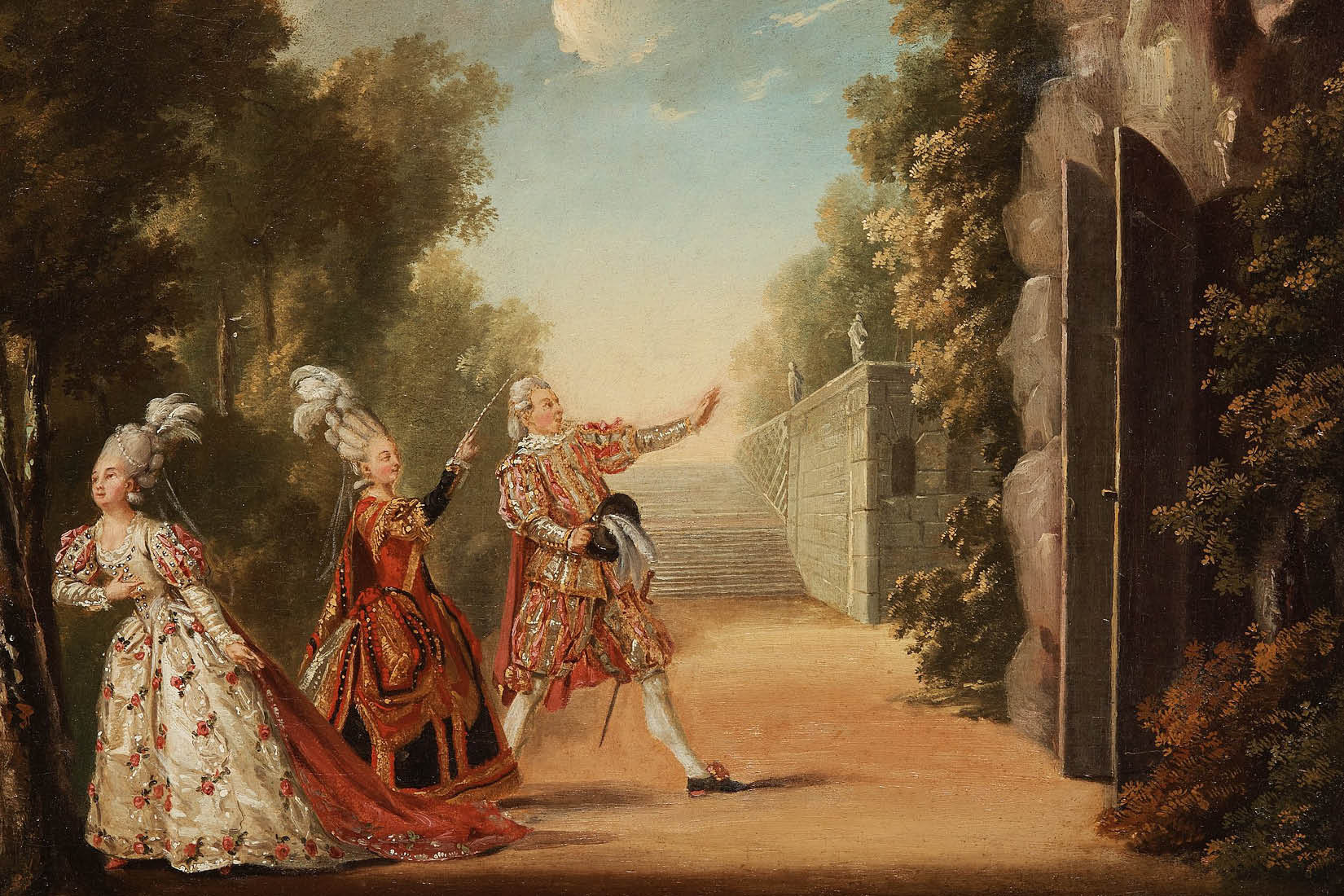In the 17th and 18th centuries, French culture, like Italian culture, represented the absolute ideal for the artistic life of the royal courts. The Swedish court was no exception. In the mid-17th century, Christina, Queen of Sweden sought to fashion her court in the French style, recruiting ballet master Antoine de Beaulieu, a group of French violinists and, most importantly, the famous Parisian singer Anne Chabanceau de la Barre. At that time, musicians often travelled extensively, and many French and Italian musicians worked in the Nordic courts for varying periods. French compositions were imitated and integrated into Swedish works, French opera prologues were written to serve the political agenda of Swedish sovereigns, and French musicians trained their Swedish counterparts in the style and practices of French interpretation.
This programme, conceived by singer Annastina Malm, draws on the work of musicologist Maria Schildt and on the themes of the new presentation of the permanent exhibition at the Institut suédois, which explores the ideas, aspirations and tensions that marked the Age of Enlightenment. Maria Schildt focuses on French influences on Swedish musical life in the 17th and 18th centuries and highlights the French musicians and singers employed at the Swedish court from the time of Queen Christina to the reign of King Gustav III. The programme includes works linked to the singer Anne Chabanceau de La Barre and to Rosidor’s and Landé’s troupes (1699–1706 and 1723–24, respectively), as well as to the Royal Swedish Opera under Gustav III and to his collaboration with the French artist and theatre set designer Louis-Jean Desprez. Desprez is the subject of a temporary exhibition at the Institut suédois, related to the new permanent exhibition, which will also be open for a special preview before the concert. Maria Schildt’s narration will be illustrated by some rarities of the Swedish collections and compositions by Jean-Baptiste Lully, Johann Helmich Roman, Jean-Philippe Rameau and Pierre-Alexandre Monsigny, performed by Annastina Malm and European instrumentalists specialising in early music.
The two exhibitions that have inspired the concert will be open for a special preview visit an hour before the concert, from 6.30 pm.
A New World. Artistic and Societal Revolutions in the 18th Century
Louis-Jean Desprez. Between Worlds
Presentation of contributors:
Annastina Malm is a Swedish mezzo-soprano living in Paris. She performs in many operas and festivals in Europe – Händel-Festspiele Halle, Drottningholms slottsteater, Festival d’Ambronay, Opéra Royal de Wallonie – mainly in an early music repertoire. With her ensemble Camerata dei Curiosi, Annastina has initiated a number of projects combining music, literature, visual arts and research.
Maria Schildt is a lecturer in musicology at Uppsala University. Her research focuses mainly on music of the modern period in Europe. Since 2019, she has been working on three different research projects, addressing the transfer of music in Europe, the musical repertoire of the Age of Liberty and church music in Sweden.
Anne Pekkala is a Finnish violinist specialising in Baroque music. She performs throughout Europe and the world with various ensembles. In 2024, she recorded the violin solos of J.S. Bach’s 5th Brandenburg Concerto with Benjamin Alard. She has also performed with the Kuijken String Quartet.
Catalina Langborn, a Swedish violinist, is an independent musician who plays in a number of Baroque orchestras and ensembles. For ten years, alongside soprano Christina Larsson Malmberg, she was artistic director of Operabyrån, a project that highlighted women composers of the Baroque period.
Silvia de Maria, originally from Italy, plays the viola da gamba and also has a degree in music education and piano. She has performed with chamber music ensembles and orchestras in some of the most prestigious concert halls in more than ten countries in Europe as well as in Japan.
Brice Sailly, French by birth, trained in harpsichord at the Conservatoire National Supérieur de Musique de Paris. He performs as a soloist and in recitals in Europe, Argentina and Japan. As a continuo player, choir master and research assistant, Brice collaborates with a number of ensembles. His most recent recording, Mr Couperin, was awarded the Diapason d’Or of the year and the Choc de Classica.
An event in collaboration with the Camerata dei Curiosi ensemble, coproduced with the Association Squadrone Volante, a collective dedicated to 17th- and 18th-century music.
This project has been made possible thanks to the generous donation from the Björn and Inger Savén Foundation. Thanks also to the Jacob Wallenberg Foundation for its support.
In partnership with Uppsala University, Sweden.
Useful Information
- The presentation by Maria Schildt will be in English.
- Free admission – reservation required: Book a seat
